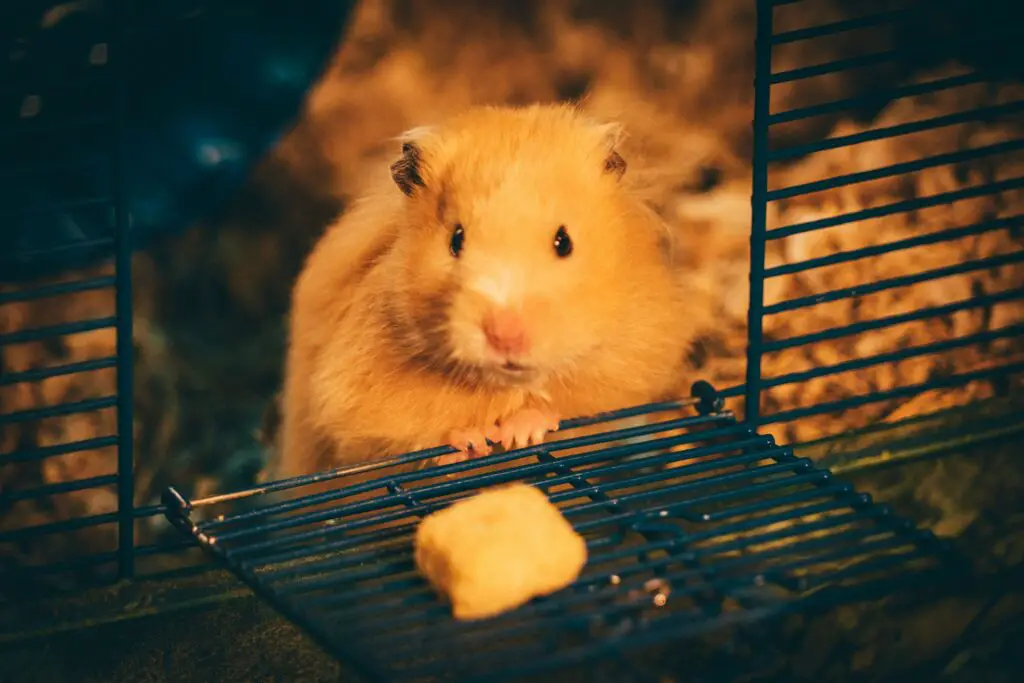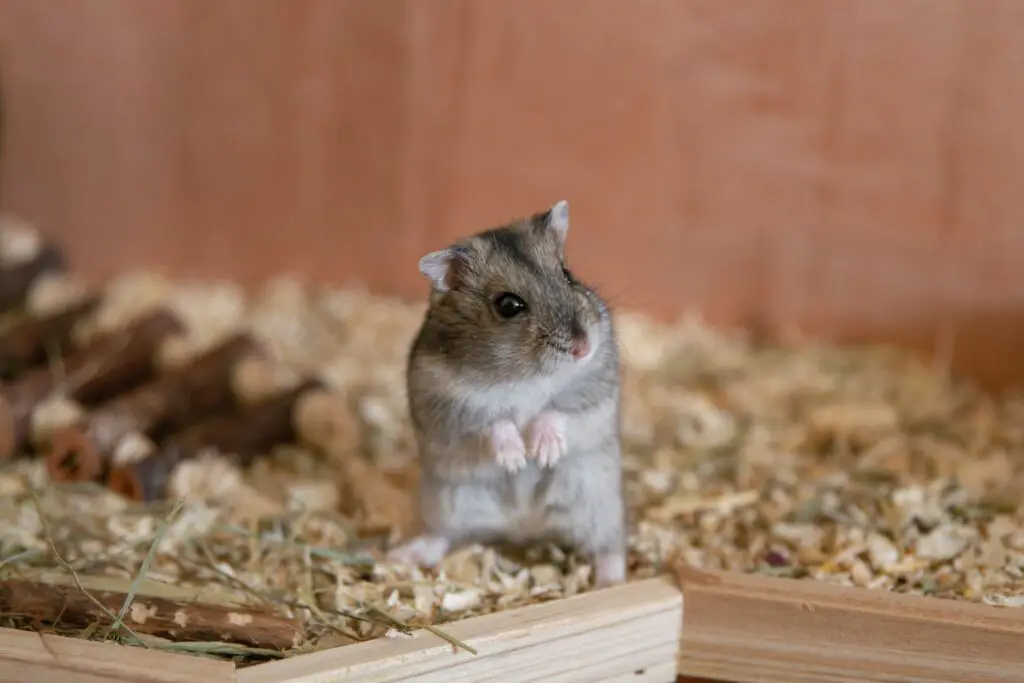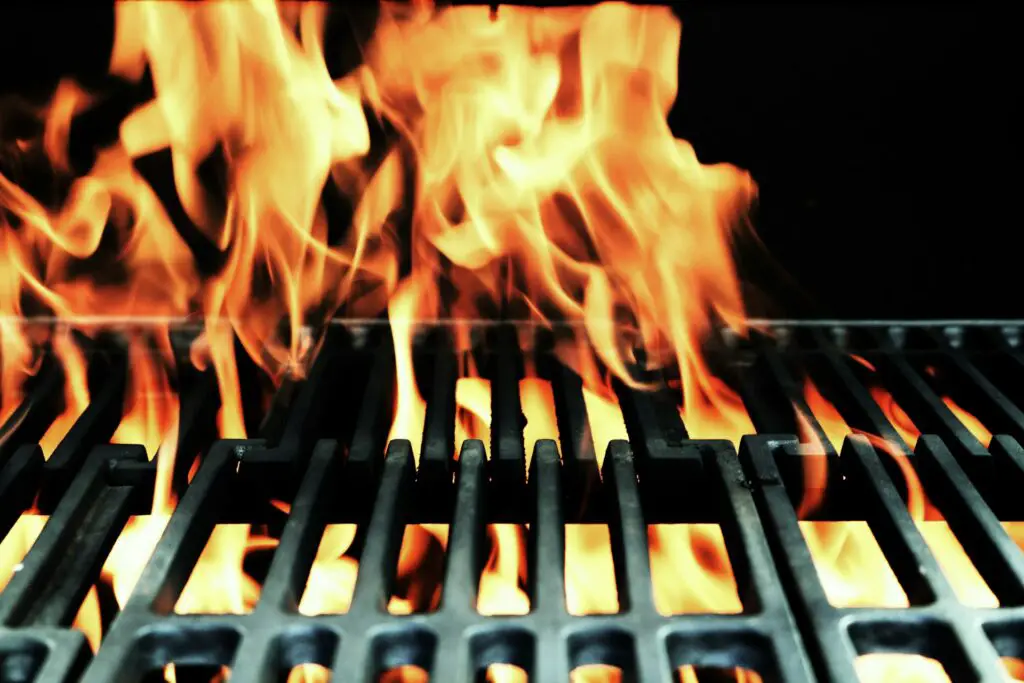As the grilling season approaches, every seasoned grill master must take proactive steps to prevent mice from turning their barbecue grill into a home. Mice can carry multiple diseases that are harmful, and their droppings and urine can be dangerous. Recognizing signs of mouse droppings, safeguarding your outdoor grill, and understanding how to get rid of mice is essential for a pristine and safe grilling environment. From using copper mesh to block entry points to maintaining a clean gas grill, these tips will ensure your grill remains rodent-free.
Recognizing Signs of Mice in Your Grill
As you anticipate the arrival of grilling season, be vigilant for signs of mice in your outdoor grill. Mouse droppings, which are small and dark, are a telltale indicator of rodent presence. Additionally, a mouse nest, typically made from shredded material, can often be found in secluded areas of your grill. If you notice these signs, it’s crucial to act swiftly to rid of mice and avoid the health risks posed by their droppings and urine.
Urine can be dangerous, as it may contain pathogens that carry multiple diseases that are harmful to humans. A seasoned grill master will regularly check their barbecue grill for droppings and urine, especially after periods of non-use, to ensure their cooking space is sanitary and safe. Remember, the earlier you detect mouse droppings, the easier it will be to address the mouse problem and prevent further contamination.

Strategic Grill Placement and Storage
Preventing a mouse nest from being established in your grill begins with strategic placement and storage. Keep your outdoor grill at a distance from shrubs and trees, where mice are likely to nest. Always store your grill in a secure area, elevating it off the ground to deter mice from seeking refuge. Additionally, regular removal of droppings and urine is crucial to keep the area unattractive to rodents.
Choose a Secure Location to Store Your Grill
When storing your grill, choosing a secure location is paramount. An ideal spot would be a closed shed or garage, away from areas where mice frequent. The goal is to make the grill inaccessible to pests while it’s not in use. Proper storage not only prevents infestations but also prolongs the life of your grill. The use of a grill cover can provide an additional layer of protection against rodents and other pests. A cover not only shields your grill from the elements but also deters mice from nesting within. Ensure that the grill cover fits snugly and is made of a material that resists gnawing and chewing.
The Importance of a Durable Grill Cover
Investing in a durable grill cover is a simple yet effective way to protect your grill from the elements and pests. A quality cover should be heavy-duty, resistant to tears, and fit securely to prevent mice from getting inside. It’s a small investment that can save you from the hassle of dealing with a rodent infestation. Additionally, a robust grill cover minimizes the risk of moisture build-up, which can attract mice searching for water sources. Make sure to inspect the cover regularly for any signs of wear or damage, and replace it if necessary to maintain an effective barrier against rodents.

Grill Maintenance and Upkeep
Maintaining your grill is crucial in preventing rodents from making it their home. A mouse nest within your grill not only poses a health risk but can also cause damage to the grill itself. Regular inspection and cleaning are key to avoiding such unwanted guests.
The Necessity of Keeping Your Grill Clean
Bits of food and food residue are invitations for pests, particularly mice, which are drawn to the scent of leftovers. To prevent mice from infesting your grill, it’s essential to wipe down the grates after each use with a grill brush. Don’t neglect the grill body and drip pan, as these areas can also harbor enticing crumbs for rodents. Regular cleaning of your grill with a wire brush will remove lingering food particles that could attract mice. Additionally, be mindful of nearby bird feeders or other potential food sources that may lure mice closer to your grilling area, increasing the risk of infestation.
Timely Repairs: Sealing Holes and Gaps
An effective way to keep mice from gaining access to your grill is to promptly seal any holes or gaps they could use to enter. Steel wool is an excellent material for plugging these potential entry points, as mice are unable to chew through it. Regular checks for breaches in your grill’s exterior can prevent future rodent problems. Make sure to replace any damaged parts and ensure that the grill is structurally sound. This not only keeps mice out but also ensures that your grill operates safely and efficiently.
Winter Grilling: Seasonal Maintenance Tips
During the colder months, it’s important to clean your grill thoroughly to prevent a mouse problem. Leftover food particles can attract rodents looking for a warm place to nest. Keep your grill’s health and safety in top condition by performing a deep clean before storing it for the winter. Seasonal maintenance should include a thorough inspection for any signs of mice. If you come across evidence of a mouse problem, address it immediately to prevent the issue from escalating.

Natural and Safe Rodent Deterrents
To naturally deter mice, ensure that no leftover food remains in your grill box. Mice are attracted to food sources, and a clean grill is far less appealing. Use safe and natural methods to keep your outdoor cooking space from rodents.
Harnessing the Power of Natural Repellents
Using a grill cover is an effective measure against rodents, but adding natural repellents can enhance protection. Consider placing cotton balls soaked in peppermint oil near your grill, as the strong scent is known to deter mice. This method can prevent the establishment of a mouse nest without resorting to harsh chemicals. Keep your BBQ cover in good condition, as it serves as the first line of defense. Regularly refreshing the peppermint oil on the cotton balls will maintain the repellent’s efficacy throughout the grilling season.
Innovative Solutions: Botanical Repellents
Advancements in pest control include botanical repellents that are safe to use around your grill. These natural mouse-repellent options can deter mice without the risks associated with chemical-based products. Look for commercial mouse repellents that are specifically designed for outdoor use and are non-toxic to humans and pets. Apply these repellents according to the manufacturer’s instructions to create a protective barrier around your grill. Using a botanical solution, you can keep your grill cover and BBQ cover free from unwanted pests without compromising the environment or your health.
Professional Pest Control Considerations
When facing a persistent rodent problem, professional pest control services can provide effective and lasting solutions. These experts utilize a variety of methods, including ultrasonic pest control devices, to keep mice at bay. Ultrasonic devices emit high-frequency sounds that are discomforting to rodents, encouraging them to vacate your grilling area without the use of harmful chemicals.
Why Professional Oven and Grill Cleaning Services are Worth It
After addressing a rodent issue, turning to professional oven and grill cleaning services ensures that your cooking appliances are free from any residues left by unwelcome guests. Animal control specialists often partner with cleaning services to provide a comprehensive approach to restoring your grill to its optimal condition. This collaboration not only removes the evidence of infestation but also prevents future occurrences by identifying and eliminating attractants. Cleaning professionals have the tools and expertise to thoroughly sanitize your grill, reaching places that might be overlooked during a regular clean. Their meticulous attention to detail guarantees that no corner is left unchecked, providing peace of mind that your grill is safe and ready for your next barbecue.
Post-Infestation Concerns
After eradicating mice from your grill, it’s crucial to address any health risks associated with their presence. Ensuring that all surfaces are properly cleaned is vital to prevent spreading diseases that can be transmitted through rodent feces and urine.
Ensuring Safety After a Mice Infestation
Once a rodent problem is resolved, it’s important to follow instructions for cleaning to prevent any health hazards. Consult the owner’s manual and care instructions online for specific guidelines on how to clean the grill correctly. This typically involves removing any nest in your BBQ, ensuring to regularly empty the warming rack, and scrubbing all surfaces where mice may have roamed.
While cleaning, always wear gloves to protect yourself from any contaminants. Thoroughly remove all signs of feces and urine, and consider setting mouse traps nearby to monitor for any new activity. Regular maintenance and vigilance will keep your grill in top shape and deter rodents from returning.
Keeping Your Grilling Area Sanitary Without Chemicals
To maintain health and safety standards, clean your grill regularly to remove food particles that attract mice and other pests. This routine not only keeps your grill ready for use but also ensures your outdoor cooking space is safe from predators. By staying on top of cleanliness, you create an environment that is less inviting to rodents and other wildlife.
In addition to cleaning, consider natural deterrents such as peppermint oil or non-toxic sprays that can provide an extra layer of protection. These substances can be applied around the grilling area to repel mice without introducing harmful chemicals into your cooking space. With these simple, chemical-free methods, you can enjoy your outdoor culinary experiences with confidence.
Conclusion: Stay Vigilant to Protect Your Grill from Rodents
Ultimately, the key to keeping your grill free from mice and other pests is consistent vigilance. Remember, leftover food is a major attraction for these critters, so ensuring your grill box is clean after each use is critical. Regularly inspect for any signs that mice are attracted to your grill, such as droppings or nesting material. By maintaining a routine that includes cleaning, using physical barriers, and securing food sources, you create an environment that’s less inviting to rodents. Implementing natural deterrents can be a simple yet effective strategy. For instance, you can soak a few cotton balls in a mixture of peppermint oil with water and spray around the grill area, as the scent is known to repel mice. It’s recommended to do this every 30 minutes during peak rodent activity times. Additionally, using stainless steel wool to block potential entry points can prevent rodents from turning your grill into a source of food for mice. Stay proactive, and your outdoor cooking experiences will remain pleasant and pest-free.

